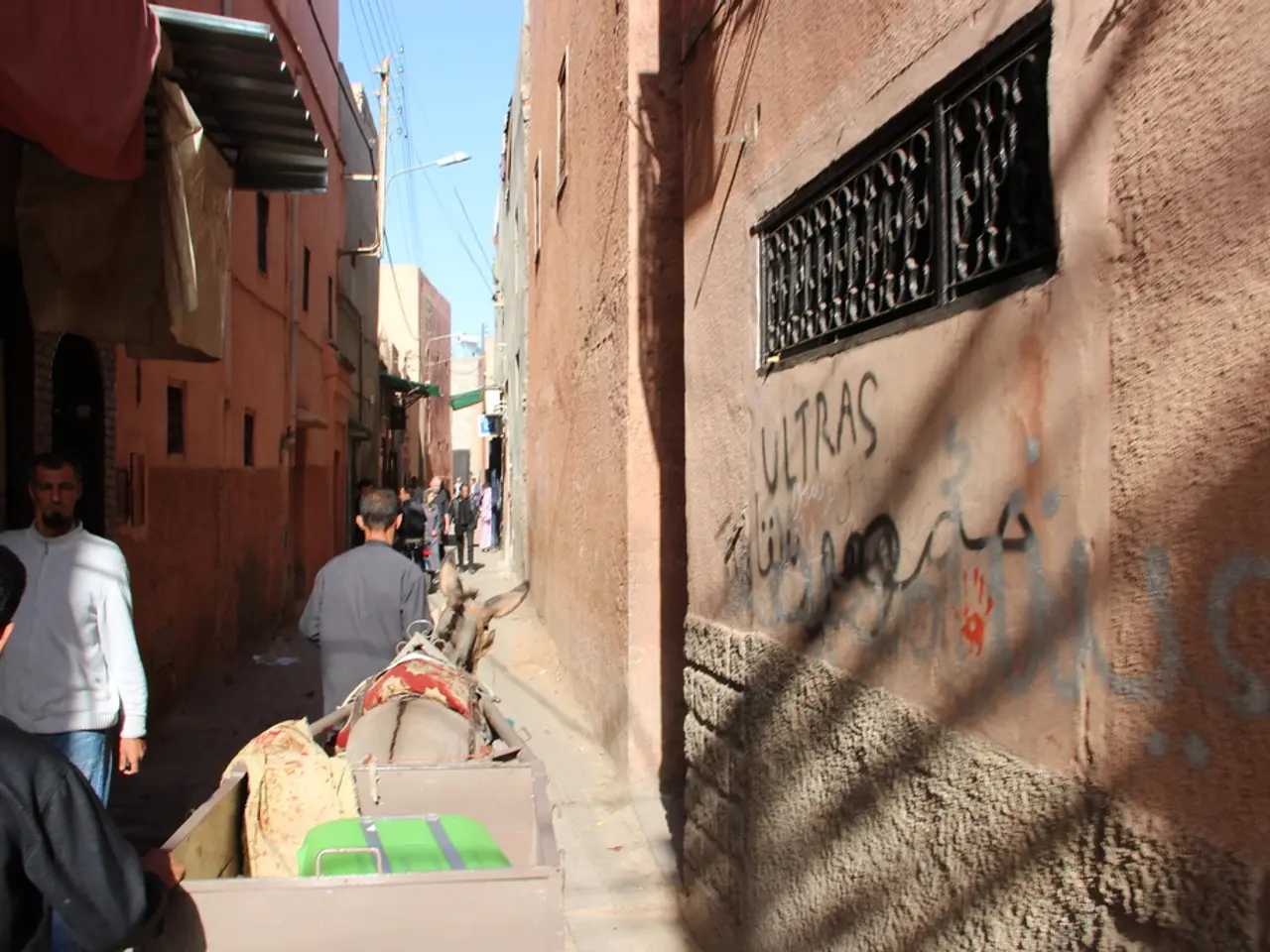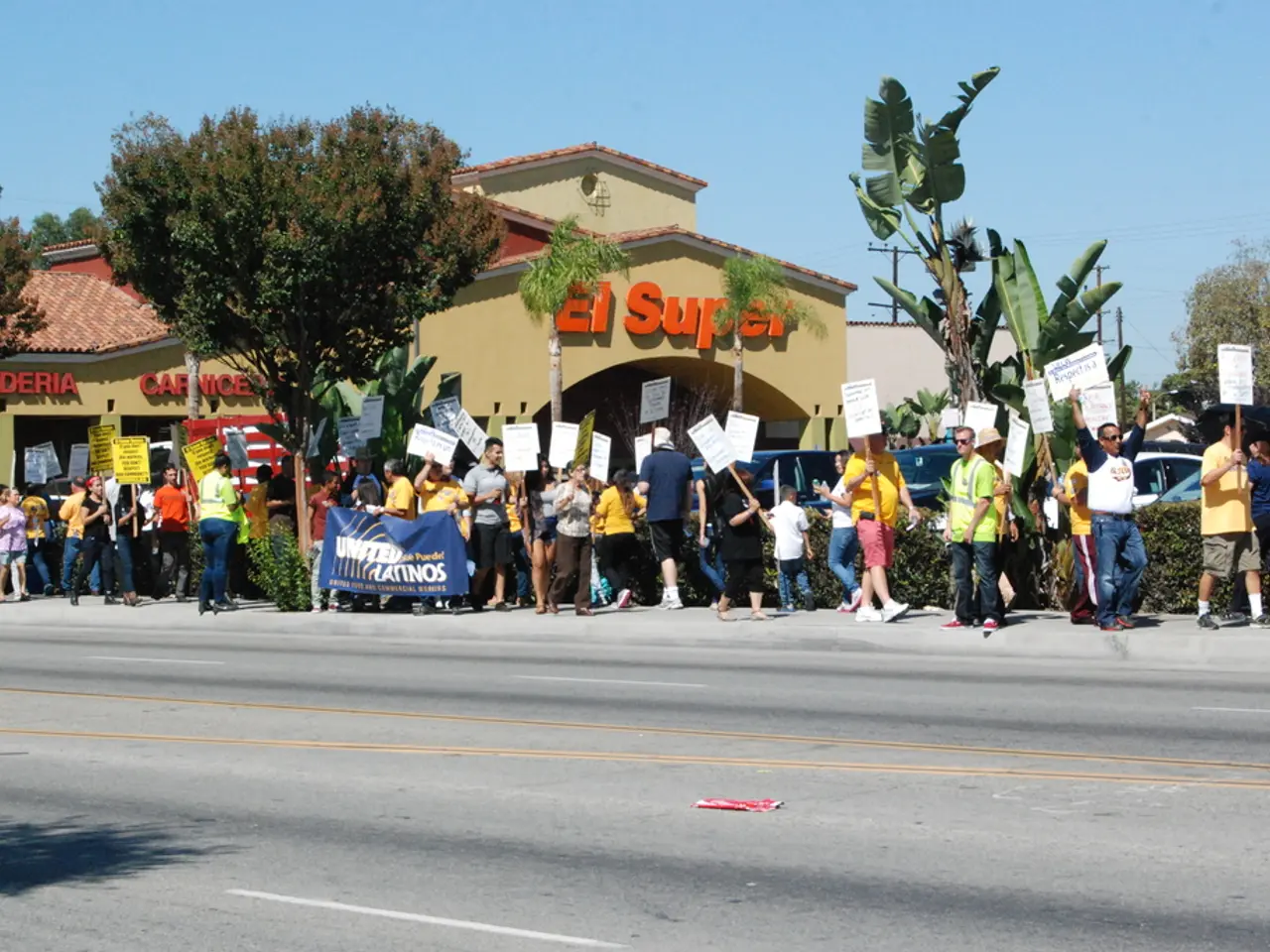Violence is once again being inflicted upon the Weimar stumbling blocks with significant force.
In the heart of Germany, the city of Weimar has been shaken by a series of disturbing incidents. Overnight from Tuesday to Wednesday, at least two stumbling stones were deliberately destroyed, and another was severely damaged. The latest desecration involved the spraying of red paint and severe damage with a sharp object on one stumbling stone in Steubenstraße. Another memorial stone in Hummelstraße was destroyed, and another in the same street was also affected.
These desecrations are not isolated incidents. Stolpersteine, the small brass plaques embedded in sidewalks commemorating Holocaust victims, have frequently encountered opposition, vandalism, or political rejection in Germany, reflecting complex societal struggles over Holocaust memory, remembrance culture, and antisemitism.
The stumbling stones in Weimar serve as visible reminders of the suffering and disenfranchisement of Jewish and other persecuted individuals during the National Socialist era. The latest desecration has left the Lernort Weimar association, which mediates sponsorships to protect the stumbling stones, in shock. Jonny Thimm, a board member, expressed his dismay, explaining the significance of these memorials.
Mayor Ralf Kirsten has appealed to the state of Thuringia to ensure more visible police presence in Weimar, given the city's historical significance. He has demanded a clear response from the rule of law regarding the repeated incidents of stumbling stones desecration. The Mayor has condemned the acts in the strongest terms, calling those who destroy stumbling stones as having lost all sense of humanity.
The city administration has informed about the desecration of the memorial stones and the defacement of a bench sponsored by the Weimar Partnership for Democracy at August-Frölich-Platz. Anti-Semitism has no place in Weimar, according to the Mayor.
The city will cover the costs for the restoration of the destroyed stumbling stones. The repeated incidents should not be tolerated, according to Mayor Kirsten. He emphasized that these acts are cowardly and an expression of a brutal, empathy-less attitude.
The police are currently investigating a 47-year-old in connection with numerous offenses, although it is not specified whether these offenses include the desecration of stumbling stones. The incidents in Weimar are part of a broader phenomenon in Germany where the Stolpersteine, symbolic memorials to Holocaust victims, frequently encounter opposition, vandalism, or political rejection, reflecting complex societal struggles over Holocaust memory, remembrance culture, and antisemitism.
[1] Schonfeld, M. (2019). Stolpersteine: The Memorials to the Murdered Jews of Europe. New York: Enigma Books.
[3] Katz, J. (2018). The Holocaust in History: A New Perspective. Cambridge: Cambridge University Press.
- The desecration of stumbling stones, general-news in Weimar, reflects complex societal struggles over Holocaust memory and antisemitism, much like other incidents of vandalism or political rejection previously seen in Germany.
- The repeated acts of crime-and-justice, such as the destruction of stumbling stones in Weimar, undermine the city's efforts to remember and honor Holocaust victims, and are condemned by the Mayor as cowardly and expressive of a brutal, empathy-less attitude.






